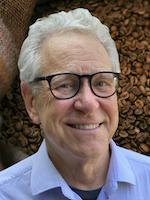

Many educators cannot afford high quality resources
for technology career awareness. In addition, the pandemic has made traditional in person field trips very problematic. Virtual fields, funded by major companies, have stepped in to fill that gap. The technology intervention includes live (interactive) and archived field trips. The online curriculum resources also include web simulations, student challenges, and premade ppt (and other) presentations for teachers. Three virtual field trips will be modeled, then participants will explore others. Based on participant pollings, the models will chosen from Boeing, LG, Stanley Black & Decker, AstraZeneca, Center for Nuclear Science or others from the STEM Coalition. Each has an interactive field trip (now archived), which will be briefly shown, then the accompanying lesson plans, interactives, and standards-based alignments for grades 3-12, will get a deep dive.
Models for non-STEM careers include: Sustainable Happiness Skills (gr 7-12); Soar With Wings: Social Emotional Skills for School and Life (K-5); Super Health, Super You (4-6); Operation Prevention – Opioids (3-adult), Vaping (6-12), Ask, Listen, Learn –Alcohol and the Developing Brain (5-7)
Lesson Plans: Each of these sites, and all OER sites in the presentation, have
lesson plans targeting specific grade levels and/or subject areas.
Evidence of success. Many of these OER programs are too new for
documented success. All are monitored so assessments of success will be available at each program's review. Formative success for this session will be participants sharing awareness of these sites and resources with their own educational colleagues and with others. This will be done with guided practice, That is the primary purpose of the session. A second primary purpose is enable meaningful use of them in classrooms.
-15 minutes: Presenter explains origin and scope of free material. Breaks
participants into teams (in person, or in virtual online groups). Presenter models diving deep into resources, using three examples. Participants download master workshop materials ( on phones, tablets, or laptops). The download contains links, simplifying resource exploration.
-15 minutes: Participants in teams explore no-cost resource sites and
materials. Many of the resources have branches for different grades levels
and goals. Each team will be guides to explore a minimum, of two resource
sites. Teams then create six-word stories summaries of the resource(s) they
reviewed.
-20 minutes: Teams present their six-word stories and expand on the
resources they reviewed. After exploring, they move six-word story
summaries on to a pre-set Google Doc.
-10 minutes: Review of new summaries. Reflections, Q & A
Available research examples on careers. For careers, first, then followed by research on the importance of SEL in general, for the SEL virtual fields which participants will take resources for.:
"Role of Career Exploration in Influencing Career Choice among
Pre-University (High Schoo) Students" Noor Ashira Yusran,Mohd Hazwan Mohd Puad, * and Muhd Khaizer Omar2, Pertanica, Social Science, and Humanities Journal 2019)
"Partnering with Families for Middle School Career Exploration. Research-Based Strategies for Middle-Level Educators" Developed by the Ohio Statewide Family Engagement Center Keli Bussell, Patrick D. Cunningham, Edward C. Fletcher, Jr., Barbara J. Boone, and Traci Lepicki (2021)
"How can a relevance intervention in math support students' career choices?"HeidePiesch1HannaGaspard1CoraParrisiusEikeWilleBenjaminNagengast, Journal of Applied Developmental Psychology
Volume 71, November–December 2020, 101185
"Career development learning in childhood: a collaborative guidance approach in Spanish low-income contexts" Soledad Romero-RodríguezORCID Icon,Celia Moreno-MorillaORCID Icon &Eduardo García-JiménezORCID Icon, British Journal of Guidance & Counselling (2021The most available research is on the SEL programs. These follow. Listed after that is the research on career exposure for grades 3-12 Students.
Effective universal school-based social and emotional learning programs for improving academic achievement: A systematic review and meta-analysis of 50 years RP Corcoran, ACK Cheung, E Kim, C Xie - Educational Research Review, 2018 - ElsevierSocial and Emotional Learning: Promoting the Development of All Students
Joseph E. Zins &Maurice J. Elias Pages 233-255 | Published online: 05 Dec
2007; The Scientific Base Linking Social and Emotional Learning to School
Success. Joseph E. Zins,Michelle R. Bloodworth,Roger P. Weissberg &Herbert J.
Walberg Pages 191-210 | Published online: 05 Dec 2007; Enhancing school-based prevention and youth development through coordinated social,
emotional, and academic learning. Greenberg, Mark T. Weissberg, Roger P.
O'Brien, Mary Utne Zins, Joseph E. Fredericks, Linda Resnik, Hank Elias,
Maurice J. .; The Impact of Enhancing Students’ Social and Emotional
Learning: A Meta‐Analysis of School‐Based Universal Interventions Joseph A.
Durlak Roger P. Weissberg Allison B. Dymnicki Rebecca D. Taylor Kriston B.
Schellinger. "Implementing social and emotional learning (SEL) in classrooms and schools" MA Brackett, NA Elbertson, DN Simmons, RS Stern - 2019
First published: 03 February 2011
Each website also contains documentation (in addition to activities):
https://www.learnexperiencehappiness.com/
https://www.soarwithwings.com/
https://superhealthsuperyou.com/
https://www.operationprevention.com/
https://www.discoverbrainbodybehavior.com/